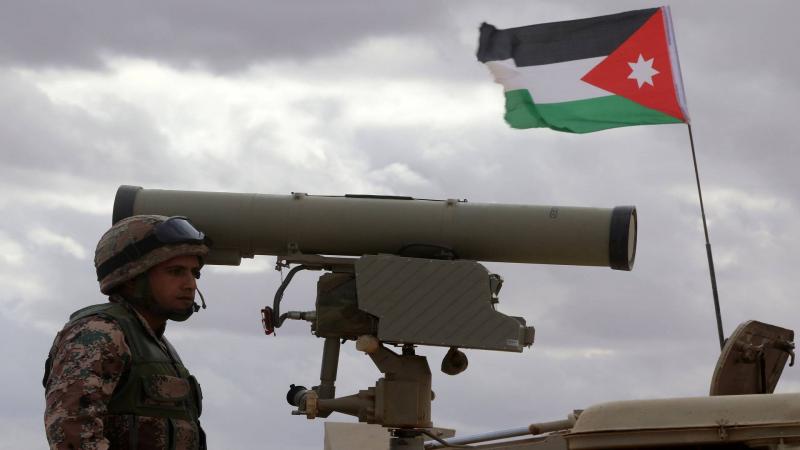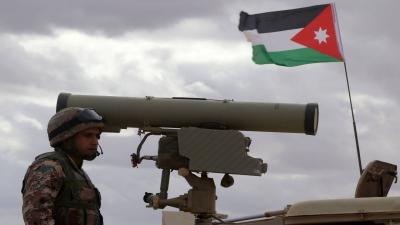Thus far, Jordanian officials have been expecting a swift Iranian response to Israel following the assassination of Hamas political bureau chief Ismail Haniyeh in Tehran about two weeks ago. Jordan is closely monitoring the movement of American military mobilization in the region and the exchange of statements between Iran and Israel, which have put the area on edge, awaiting Tehran's response and the possibility of subsequent Israeli reactions that could lead the region into a regional war. However, Jordanian officials have expressed optimism in recent hours about Iran delaying its response to Israel if a ceasefire agreement in the Gaza Strip is reached this week.
Alongside Jordan's diplomatic efforts aimed at halting the war in Gaza to avoid an escalation of the conflict that threatens regional stability, military and security readiness has taken on an operational form through measures to prevent any breaches of the kingdom's airspace and sovereignty. It is known that Amman has rejected becoming a battlefield and has informed all parties (Washington, Tel Aviv, Tehran, and others) that it will not allow anyone to use its airspace or territory for military operations, according to official statements.
The phrase, "to the extent that Jordan is able and according to its capacities and capabilities, it will confront any attempt to breach its airspace," articulated by Jordanian officials in recent hours, outlines the practical limits of dealing with a dangerous military-security situation that may involve advanced weapon technologies and show of force in the context of the anticipated Iranian-Israeli escalation, which presents a security challenge that Jordan will face due to its geographic location.
Jordan's King Abdullah II, Prime Minister Bisher Al-Khasawneh, and Foreign Minister Ayman Safadi have all reiterated Amman's position that "it will not be a battlefield, and it will not permit endangering the lives of its people." Jordan does not hide its concern over the presence of parties in the region attempting to undermine its internal security, with many of these attempts having been monitored and exposed. There have been increasing voices from various political elite in Jordan expressing their fears of threats to Jordan's security and stability, emphasizing that the necessities of the upcoming stage must consider adapting to this targeting.
These elites referenced the scheduled first meeting of the National Security Council, established under constitutional amendments at the beginning of 2022, which carries important political and security implications given the ongoing dangerous escalation in the region and neighboring countries, alongside the continued anticipation of the Iranian response to Israel.
In the context of Jordanian fears, there are concerns that the skies over the kingdom could become a battleground for Iranian missiles and Israeli defense systems, which, in local calculations, poses a security threat to the lives of citizens and property. A recent memory includes the night of April 13, when dozens of Iranian drones fell inside Jordanian territory, with some landing among populated areas after being intercepted. If this is the case with drones, Jordanians are apprehensive about the use of missiles manufactured using modern weaponry technology.
Jordan's decision-making center's fears are compounded by tensions on its northern and eastern borders, where large areas are controlled by Iranian militias with hostile agendas against Jordanian security and who continue attempts to smuggle drugs and weapons in a dangerous economy that has strained frontline military defenses, which deal almost daily with the influx of gangs with various loyalties and interests.
All of this explains the active movement of Jordanian diplomacy, which seeks to define the region's current crisis as the continuation of the war and aggression against Gaza, prioritizing an immediate ceasefire rather than the anticipated Iranian-Israeli escalation, which would serve the ongoing escalation and mutual reactions that Amman fears.




